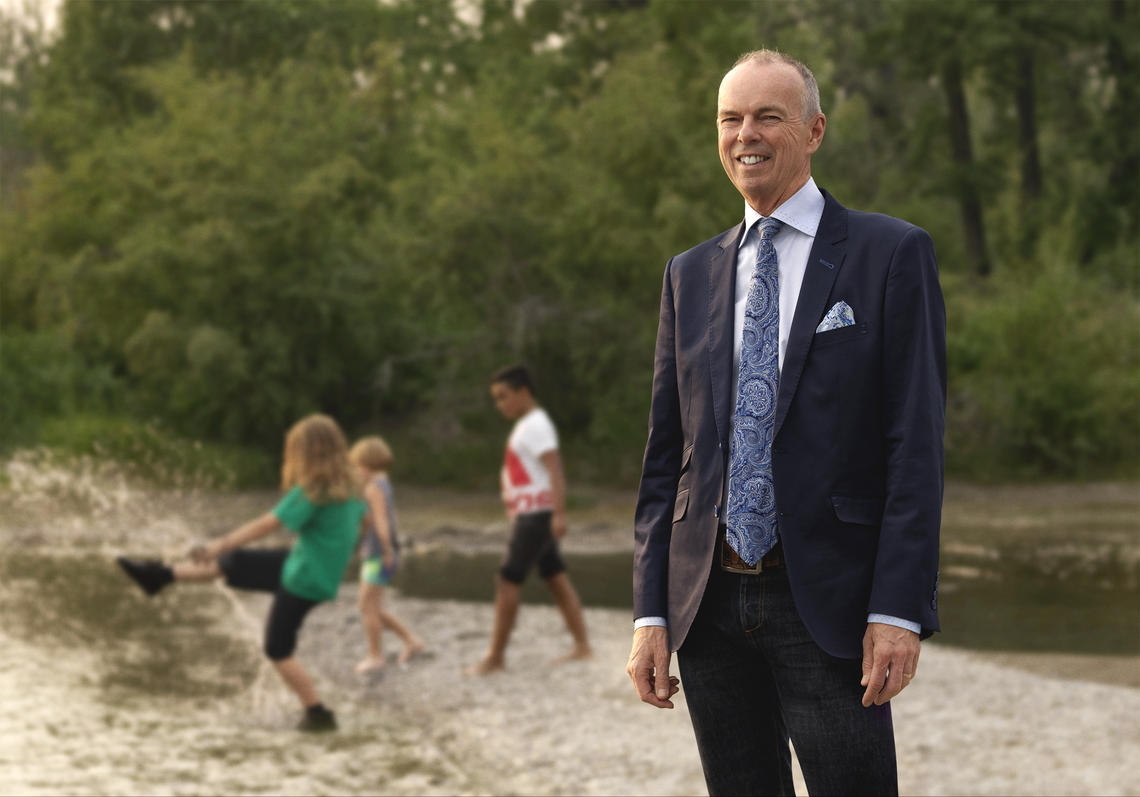Jan. 18, 2019
Professor of masculinities studies applauds controversial Gillette ad

Michael Kehler says the Gillette ad has been a popular point of discussion in classes this week.
Roth and Ramberg Photography
If you haven’t yet seen the controversial new Gillette ad, well, go ahead; we’ll wait here for you.
What did you think? Inspiring? Outrageous? On point? Insulting? Whether you like the TV commercial or not, there’s no denying the campaign — a take-down of oppressive male behaviour spun out of Gillette’s old “the best a man can get” tagline — hit a nerve.
The 1:48-minute spot was released on Sunday, Jan. 13, and immediately stirred vigorous online debate over whether its message is unfairly misandrous or refreshingly progressive — not to mention whether or not a shaving supply company has any business taking a stand in the realm of social justice at all.
UCalgary’s own expert in the growing field of masculinities studies, Dr. Michael Kehler, PhD, (he holds the only such specialized research professorship in North America) is all for Gillette’s approach. “I think it’s interesting that another large company — much like Nike and Pepsi — has acknowledged that their clientele has views and opinions on issues such as equality and gender identity,” says Kehler, who teaches future teachers in the Werklund School of Education to examine and recast their expectations of, and approaches to, masculinity in the classroom.
In contrast to the outrage on some social media channels that a corporation would bank on the #metoo movement to push their brand, Kehler applauds Gillette’s “bold strategy to examine a historical snapshot of how boys and men have been taught to behave, and show how men can, instead, be agents of positive change.” The ad, he says, is simply a reflection of a widespread, ongoing conversation that should not be eased up on.
“If people start saying, ‘We don’t need this, everything is fine, it’s over with,’ then the discussion gets shut down,” says Dr. Kehler. “The fact of the matter is, this conversation is not over, and men who feel under siege may need to get comfortable with the evolution of gender relationships and moving on from old narratives of power.”
The ad has already been a popular point of discussion in Kehler’s classroom this week. “My students don’t see anything ‘wrong’ with Gillette’s approach — they generally see it as a sign of the times, and expect that social issues are very much a part of advertising.” Indeed, he says, advertising has long been a political act. “Think of all the images and perspectives on men and women that advertising has reflected and promoted for decades,” he says.
Whether the campaign will help Gillette sell more (or fewer) razors remains to be seen but, in the meantime, says Kehler, the company’s approach creates one more context for youth and adults alike to speak up against systemic discrimination. “We need to keep expanding space for more and more voices.”
One day he says, with characteristic humour and optimism, “maybe we’ll be hit with a barrage of ads featuring nurturing men who are great listeners.” Until then, he adds, “we need to keep talking.”
Calgary’s Silver Gummy Foundation, which strives to use education as a means of reducing male-perpetrated sexual and domestic violence, made a gift of $250,000 to UCalgary’s Energize campaign to support this inaugural Professorship in Masculinities Studies at the Werklund School of Education.
